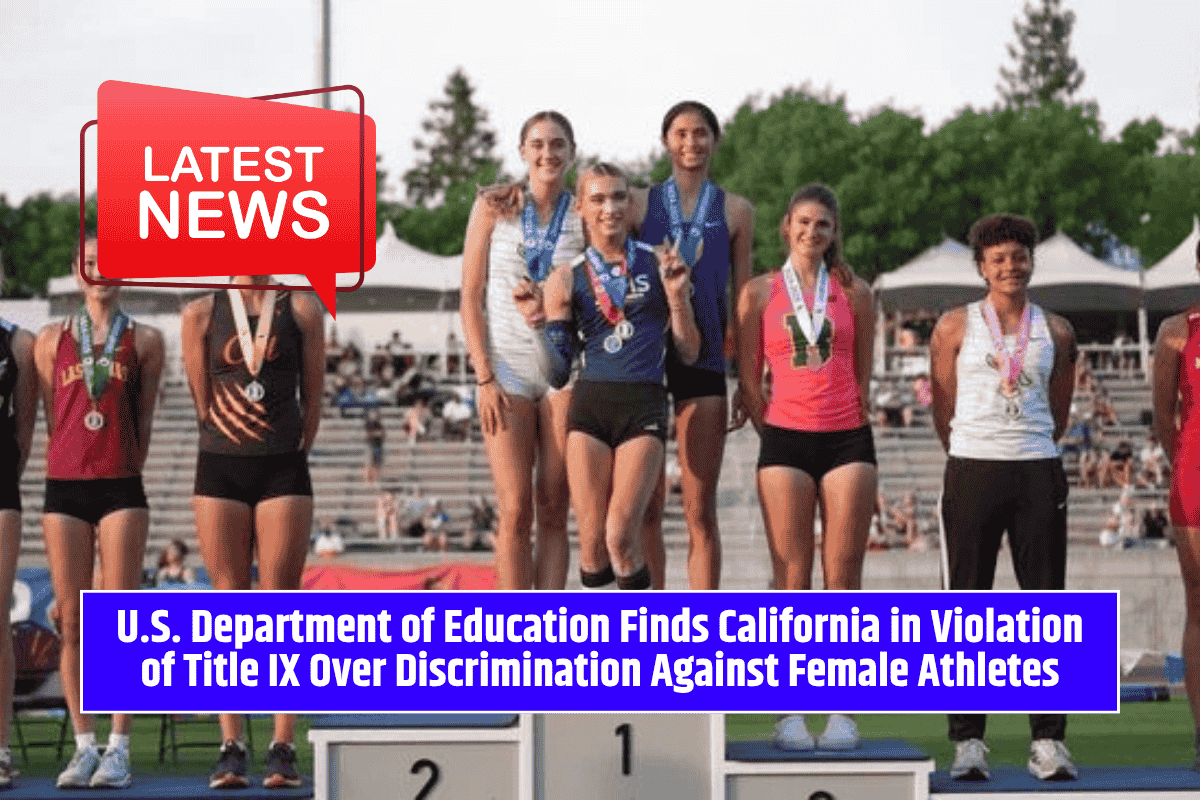The U.S. Department of Education recently announced a significant step in ensuring fairness in women’s athletics.
The University of Pennsylvania (UPenn) has agreed to a Resolution Agreement to comply with Title IX, a law that protects women from discrimination in education, including in sports.
This agreement comes after a thorough investigation by the Department’s Office for Civil Rights (OCR), which found that UPenn violated Title IX by allowing a male swimmer, Lia Thomas, to compete in women’s athletic programs and use female-only facilities.
What Led to the Agreement?
The Department’s OCR opened an investigation into UPenn following the decision to let Lia Thomas, a transgender woman, join the Women’s Swimming and Diving Team. Thomas’s participation sparked significant controversy, particularly among her female teammates.
One of Thomas’s former teammates, Paula Scanlan, testified before Congress, sharing her discomfort and the psychological pressure she and other female swimmers faced when they were told to become comfortable with sharing intimate spaces with a male swimmer.
The investigation concluded that UPenn’s actions violated Title IX, which ensures that females are given equal opportunities in educational programs, including sports.
As a result, the university was given the option to resolve these violations by agreeing to a set of actions that would rectify the situation.
Key Elements of the Resolution Agreement
The Resolution Agreement includes several important steps that UPenn must take to address the violation and prevent further issues. These include:
- Restoration of Titles and Records: UPenn will restore any swimming records, titles, or recognitions that were incorrectly awarded to male athletes competing in women’s events. This ensures that female athletes receive the recognition they deserve.
- Public Commitment to Title IX Compliance: The university will issue a public statement confirming its commitment to following Title IX. This will include clear language that no male athletes will be allowed to compete in female athletic programs or use female-only facilities.
- Adopting Biology-Based Definitions: UPenn will officially adopt biology-based definitions for the terms “male” and “female” in line with Title IX. This will align with the Trump administration’s Executive Orders focused on protecting women’s sports.
- Apology to Affected Female Athletes: The university will send personal apology letters to each female swimmer who was impacted by the previous decision. This gesture acknowledges the harm done and aims to repair relationships with the affected individuals.
- Revising University Policies: Any university guidelines that contradicted Title IX will be rescinded. UPenn will also revise its internal and public statements to ensure compliance with the law and notify its staff of these changes.
Reactions to the Resolution
The announcement of the Resolution Agreement has received mixed reactions. U.S. Secretary of Education Linda McMahon praised the decision, calling it a victory for women and girls across the nation.
She emphasized that this move reflects the administration’s commitment to restoring Title IX and protecting women’s rights in education and sports.
Former UPenn swimmer Paula Scanlan expressed her relief, stating that this decision is an important step toward undoing the harm done to female athletes.
She highlighted how the psychological pressure of competing against a male athlete in a women’s category affected her and her teammates.
Riley Gaines, a former University of Kentucky swimmer, also voiced her support, emphasizing that the agreement sends a strong message to other institutions that women’s rights in sports must be respected and upheld.
What Does This Mean for the Future?
This agreement between the U.S. Department of Education and UPenn marks a critical moment in the ongoing debate over the participation of transgender athletes in women’s sports.
It sends a message to other educational institutions that they must comply with Title IX and take steps to ensure fairness and equality for female athletes.
For future generations of female athletes, this decision helps create a level playing field where their rights are protected, and their achievements are not undermined by unfair competition.
The hope is that this agreement will encourage other universities to follow suit, ensuring that women’s sports remain a space where women’s accomplishments are rightfully celebrated.






